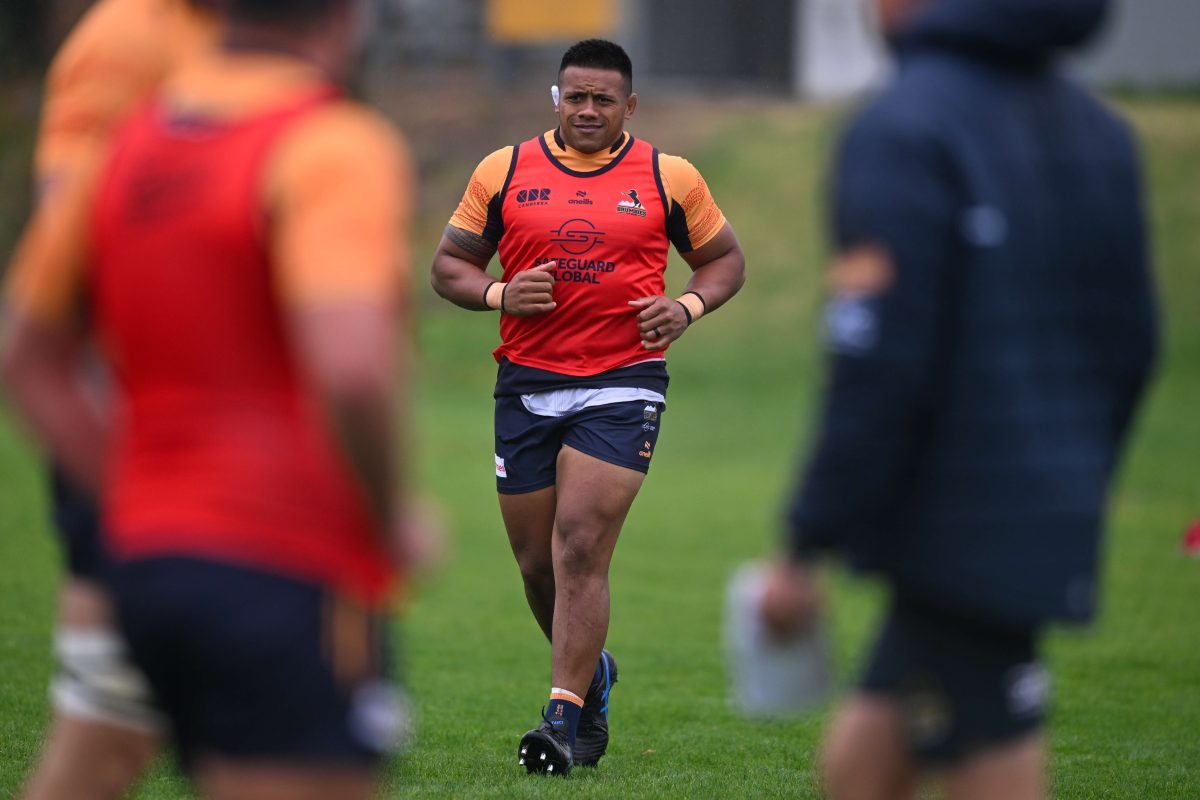
ONLY five or six years ago, Canberran blokes would do their best to just pass by the ACT Region Prostate Cancer Support Group’s awareness stalls, and the group were lucky to get an, “I’m all right, mate” as they walked by.
Today, men are willing to talk about prostate cancer, says Peter Daley, the group’s president.
“They’ll stop and talk to you; and they’re being tested – we very rarely find somebody who will walk past and ignore us these days,” Peter says.
“Up to about 50 per cent will stop and talk, and the rest will take a pamphlet. Awareness is so much better than it was just five years ago.”
September is International Prostate Cancer Awareness Month, and the support group, alongside many other men’s groups, prostate cancer groups and supporters around the country, will be setting up a couple of Big Aussie Barbies to raise funds and awareness.
This year, around 20,000 Australian men will be diagnosed with prostate cancer, and 3300 will die of the disease.
“Last year, we challenged the Minister of Health, Katy Gallagher, to put on a barbecue during September, which she did outside King O’Malley’s pub in Civic,” Peter says.
“What we’ve done this year is challenge the Leader of the Opposition, Zed Seselja, to do the same thing.”
The Support Group will also host three barbecues and Peter will visit Wagga Wagga to help finalise the establishment of a support group there.
Peter says that many men are concerned about not just testing for prostate cancer – mainly the digital rectal examination – but also the consequences of diagnosis, as some treatments can have significant side effects.
But it’s not as bad as blokes think.
“Most men, when you mention the digital rectal exam, will just shudder,” he laughs. “The message we try and get across is that’s not what happens initially. That’s the PSA test, which is just a simple blood test.
“That’s the only indicator that there might be a problem: that you have rising PSA levels over a period.”
This is a simple blood test which looks for prostate-specific antigen.
Treatment doesn’t always mean a radical prostatectomy, either; for example, Peter says that many men who develop the cancer are put on a program of “watchful waiting”.
“To put it bluntly, an awful lot of fellows die with prostate cancer, but not of prostate cancer,” he says.
“There’s also radiation therapy, and Canberra also now has brachytherapy, this involves inserting radioactive seeds into the prostate.
“This is becoming more common nowadays and it appears to be reasonably successful – and I can speak from experience as I’ve got a very good friend from Melbourne who elected to have brachytherapy 12 years ago, though back then he had to pay for the seeds himself.
“He got over it completely, and is cancer-free.”
Peter, who at 75 is alternating cycles of hormone therapy with treatment-free periods while keeping a close check on his PSA levels, says that funds raised from the barbecues will go towards purchasing equipment for Canberra Hospital and supporting men who have been diagnosed with prostate cancer and their families.
“As you can imagine, when somebody’s diagnosed, for a few days it’s the end of the world,” he says. “It’s important for these fellows to talk to others who’ve been diagnosed and undergone treatment, because these days you are given three or four different options and, as you don’t know much about them, you’re confused.
“We’ve got about 65 or 70 men in the ACT Region Support Group, and we try and provide somebody who’s been through the different types of treatment to help newly diagnosed men make up their minds.”
More information at www.prostate.org.au or call 1800 220099.
Who can be trusted?
In a world of spin and confusion, there’s never been a more important time to support independent journalism in Canberra.
If you trust our work online and want to enforce the power of independent voices, I invite you to make a small contribution.
Every dollar of support is invested back into our journalism to help keep citynews.com.au strong and free.
Thank you,
Ian Meikle, editor




Leave a Reply